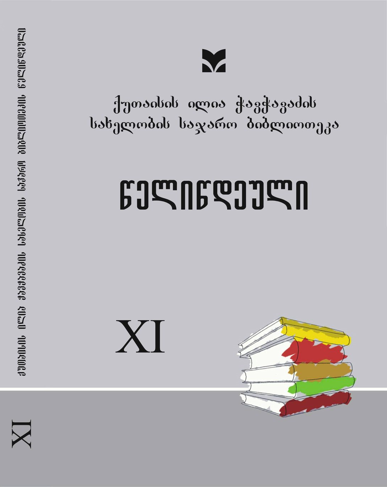Eucharist Virtue based on „Martyrdom of St. Shushanik“
Keywords:
St. Shushanik, Iakob Tsurtaveli, God, Communion, Hagiography, Gospel, MeritAbstract
In the hagiographic literature, Eucharist is a crucial issue in the life of Saints. It is a significant step for spiritual immortality. Eucharist is the principal way to eternal life, in achieving perfection of a mortal being, formation of the way towards other life. Eucharist is significant for transferring to eternal life by a person (who is on the borderline of death and life), which is the only way for the better end of the person and joining Christ together with the prayer.
According to the Christian viewpoint, the human race is sinful, and it urges to make its soul easier for its entire life. The existence of a human being should rely on the commandments of God, which means the embodiment of the Divine Word, united spirit and flesh, and starving to spiritual divinity.
Eucharist of the Saint is expressed in many forms, like passion, torture, apparel, feast, getting secret-saint Eucharist, ‹The Bride of Christ› with marriage to the God, prayer, so on.
The first Georgian hagiographic monument ‹Martyrdom of St. Shushanik› describes the way of Shushanik to God. The artistic image of the hero is presented as a person with high spiritual merits. The mentioned ‹Bride of Christ› in the text demonstrates her otherworldly presence and readiness for joining and sharing with Christ. „The Bride of Christ“ indicates that she avoided herself from Varsken even during her mortal life and did not share his so-called insidious intentions. To separate from the ‹mortal spouse› she selected shackled from this world, the worms on her body, the sackcloth, a prayer…
Separation from the deeds of the ‹Mortal Spouse› brings her closer to God for sharing divinity, it is demonstrated in the ‹dining scene› which shows a break off between her and mortal life, and that›s the reason to start preparation for sanctitude life. She waved wine offered by the wife of Jojik, demonstrating the asset from this world. The scene means the formation of a deep gap between St. Shushanik and Varsken. The Queen finally informed him about the separation and told him that since then she had joined only God. St. Shushanik shared God when the blessed confessor of God participated in Eucharist. Offering the bread with the wine by the Jacob Khutsesi to the Shushanik equals the sharing with God.
The blood on the body of St. Shushanik after torture expresses holy Eucharist. On the request of the confessor to wash the blood, the Saint answers: ‹Do not say it, as the blood is purified from my sins›. When she was severely beaten by Varsken ‹When he saw lots of blood dripping from her body, he ordered her to bend her by the chain›… By blooding and chain, Varksen supports the approximation of Shushanik to God, sharing by blood and spiritual linkage. The blood poured purifies from sins for salvation from the human sins for Shushanik.
Sharing with God means dwelling in heaven. By the teaching of God, who does not share the secret will not be born for the second time, will not be able to dwell in heaven. All the deeds of St. Shushanik are focused on sharing with God. Her behavior is full of feast, regret, prayer, solitude, covered with blacks, handcuffs, and chains that express joining and sharing of God.
St. Shushanik appears with a tired, filthy body, with worms that are needy for sharing with the divine. Jacob Khutsesi says, ‹I took the body decayed and eaten by worms. I washed the decayed parts and covered by the Cloth. The word ‹Washed› by Jacob Khutsesi indicates purification, baptizing once again, sharing with God that means significant change. It takes Shushanik to another dimension and restores her into divine integrity.
St. Shushanik›s way to another world is empty from earthly life and human passions. ‹Share my tortures, and I, my beloved, will go preliminarily prepared to the eternal way. Let Christ grant me joy for my tortures, torment, and abuse – and I will adore the glory and respect under heaven permanently›.
St. Shushanik limits herself from his mortal spouse with her way of life and spiritual needs to be far from his will, and in this way, she will multiply the grace that is very important in the sinned person with reduced kindness. That›s why every step of saint existence means a return to God, Eucharist, and return to the
divine.




